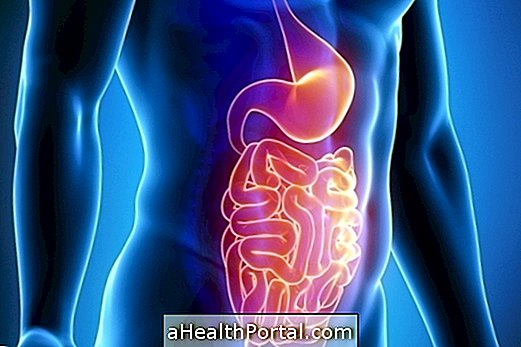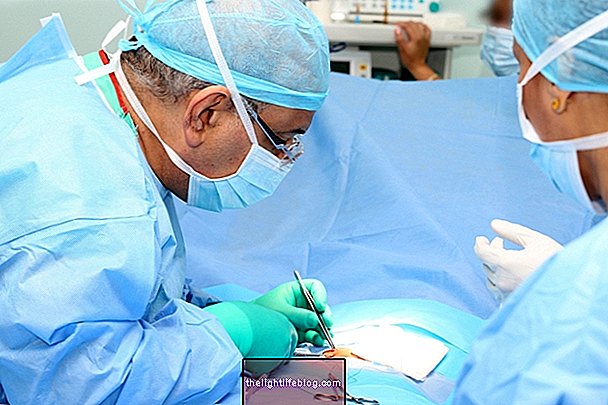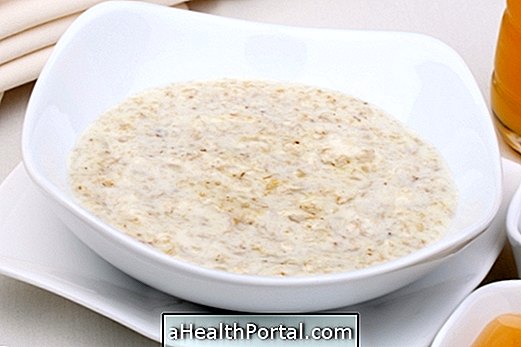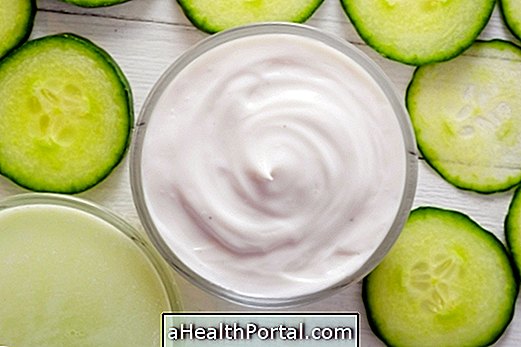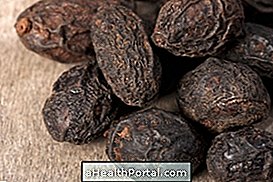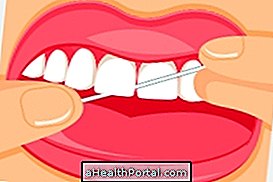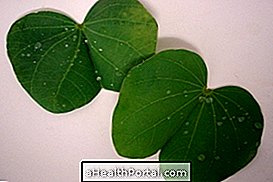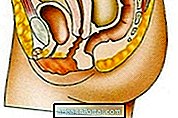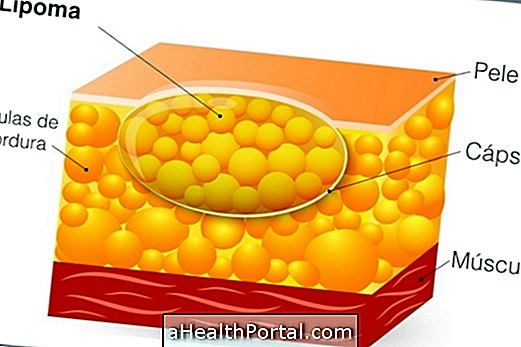Eosinophilic esophagitis is a relatively rare, chronic allergic condition that causes the accumulation of eosinophils in the lining of the esophagus. Eosinophils are defense cells of the body that, when present in high quantities, release substances that cause inflammation which ends up generating symptoms such as pain, vomiting, constant heartburn and difficulty in swallowing.
This condition can appear at any age but it is especially worrying in children, as it can cause a marked decrease in food intake, which ends up harming the entire process of growth and development.
Although there is no cure, eosinophilic esophagitis can be controlled with the appropriate treatment, which must be guided by a gastroenterologist and / or an immunoallergologist and which usually includes changes in the diet and the use of some medications, such as antacids and corticosteroids.

Main symptoms
The symptoms of eosinophilic esophagitis vary widely from person to person, especially with age. However, some signs and symptoms that appear to be more common include:
- Chronic pain in the esophagus;
- Heartburn, nausea and frequent vomiting;
- Difficulty swallowing;
- Easy for food to get stuck in the throat;
- Stomachache;
- Decreased appetite.
In addition, in the case of children, another very important sign is the difficulty in gaining weight and maintaining a development considered normal.
Since several of these symptoms are similar to those of gastroesophageal reflux, and reflux is a much more common condition, it is often the case that cases of eosinophilic esophagitis are initially diagnosed as reflux. However, after starting treatment, symptoms do not improve with treatment for reflux, which ends up needing a more rigorous evaluation until reaching the diagnosis of eosinophilic esophagitis.
How to confirm the diagnosis
The diagnosis of eosinophilic esophagitis is always initiated with a medical assessment of symptoms and medical history. However, as the symptoms are very similar to those of reflux, it is common for this to be the first medical diagnosis and, therefore, treatment for reflux is started. However, symptoms tend not to improve with the start of treatment and more tests are usually requested to rule out reflux and arrive at a more correct diagnosis.
The tests that can be ordered are upper gastrointestinal endoscopy, blood tests and allergy tests, as eosinophilic esophagitis often affects people with other types of allergies. See more about allergy tests and what they detect.
What causes eosinophilic esophagitis
The exact cause of eosinophilic esophagitis is not known, however, as the condition occurs due to an accumulation of eosinophils in the esophagus, it is possible that it is caused by an over-response of the immune system to some allergenic substances, especially in food.
Thus, and although it can occur in anyone, eosinophilic esophagitis is more common in people who already have other types of allergies such as:
- Rhinitis;
- Asthma;
- Eczema;
- Food allergy.
Eosinophilic esophagitis also tends to happen in several people in the same family.
Learn more about how esophagitis happens in the following video:

How the treatment is done
Treatment for eosinophilic esophagitis should be guided by a gastroenterologist and / or an immunoallergologist, but the supervision of a nutritionist may also be necessary. This is because, in almost all cases, treatment is done with an adapted diet and the use of medications, to relieve symptoms and improve quality of life.
1. Care in the diet
Adapting the diet is usually the first step in the treatment of people with eosinophilic esophagitis and involves eliminating foods with the greatest potential to cause allergies such as:
- Dairy products;
- Egg;
- Gluten-free foods;
- Soy;
- Dried fruits, especially peanuts;
- Shellfish.
The diet of those suffering from eosinophilic esophagitis can be very restrictive and, therefore, it is recommended to follow up with a nutritionist to avoid the lack of important vitamins and nutrients.
Often, together with the nutritionist and the doctor, it is possible to test different foods, assessing those that worsen symptoms or cause more inflammation in the esophagus, until it becomes clear exactly which foods to avoid and which can be consumed.
2. Use of medicines
Along with changes in diet, the doctor may also prescribe the use of some medications to help control inflammation and improve symptoms. Although there are no drugs specifically approved for the treatment of eosinophilic esophagitis, there are remedies that seem to help a lot in controlling symptoms such as:
- Proton pump inhibitors: reduce the production of gastric acid, which reduces the inflammation of the esophagus;
- Corticosteroids: in small doses they help to keep the inflammation of the esophagus under control.
In addition to these, new drugs are being investigated to help treat eosinophilic esophagitis, especially drugs that promise to block the proteins responsible for inflammation of the esophagus.
Was this information helpful?
Yes No
Your opinion is important! Write here how we can improve our text:
Any questions? Click here to be answered.
Email in which you want to receive a reply:
Check the confirmation email we sent you.
Your name:
Reason for visit:
--- Choose your reason --- DiseaseLive betterHelp another personGain knowledge
Are you a health professional?
NoMedicalPharmaceuticalsNurseNutritionistBiomedicalPhysiotherapistBeauticianOther
Bibliography
- FERREIRA, Cristina Targa et al .. Eosinophilic esophagitis --- Where are we today?. Journal of Pediatrics. Vol.95, n.3. 275-281, 2019
- AMERICAN ACADEMY OF ALLERGY ASTHMA & IMMUNOLOGY. Eosinophilic Esophagitis (EOE). Available in: . Accessed on Dec 09, 2020
- AMERICAN PERTNERSHIP FOR EOSINOPHILIC DISORDERS. EOE. Available in: . Accessed on Dec 09, 2020
- NORD. Eosinophilic Esophagitis. Available in: . Accessed on Dec 09, 2020
- AMERICAN COLLEGE OF ALLERGY, ASTHMA & IMMUNOLOGY. Eosinophilic Esophagitis. Available in: . Accessed on Dec 09, 2020


